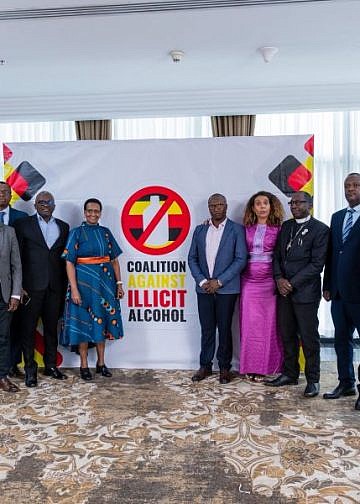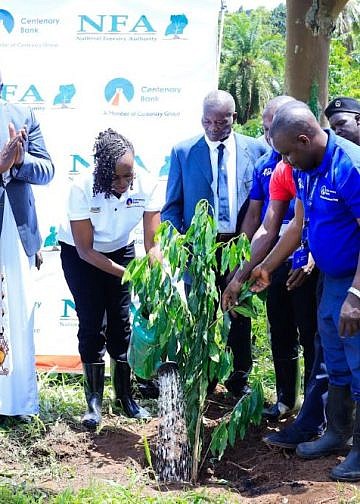A newly published white paper has sounded the alarm on a growing national crisis, revealing that illicit alcohol now accounts for 65% of all alcohol consumed in Uganda.
The study, conducted by the Coalition Against Illicit Alcohol Uganda (CAIA-UG) in collaboration with the Arrow Empirical Research Institute, exposes the devastating public health and social consequences of this unregulated epidemic.
Titled “Public Health Implications of the Harmful Consumption of Illicit Alcohol in Uganda”, the report draws from extensive fieldwork and laboratory analyses conducted in Kampala City and Arua District, uncovering dangerous levels of alcohol and methanol in locally brewed spirits, many of which are sold in unsanitary and unsafe conditions.
The findings are grim, showing that 83% of patrons reported consuming illicit alcohol within a week of being surveyed, some brews contained up to 640.59 mg/L of methanol, a toxic substance linked to blindness, organ failure, and death, 13% of respondents showed signs of alcohol dependence and 4 in 10 drink illicit alcohol daily, with men (58%) more affected, though 42% of women also reported daily use.
Beyond health, the report highlights broader societal effects – including rising cases of liver cirrhosis, esophageal cancer, youth addiction, family breakdown, and mental health disorders. Particularly alarming is the rate of underage drinking, with 19% of producers admitting to selling to minors and 39% of patrons stating they started drinking before the age of 18.
“This is not just a public health crisis. It is a human rights issue,” said Prof Myriam Sidibe, Co-Chair of CAIA-UG.
“We are losing generations of Ugandans to unregulated alcohol made in unsafe environments. This white paper is a wake-up call to Parliament, religious leaders, and communities.”
The economic underpinnings of the problem are also significant. With a bottle of illegal spirits costing as little as Shs1,000, affordability fuels widespread consumption, especially among low-income communities. Producers frequently sell their concoctions in plastic bottles, raising additional concerns due to microplastic contamination linked to cancer.
Dr. Niwagaba, a public health expert and co-author of the report, emphasized the need for holistic solutions.
“You can’t just enforce the law without considering the livelihoods at stake. We need a coordinated response that includes economic alternatives, skills development, and rehabilitation.”
The report calls for nationwide public education campaigns, especially targeting youth, informal workers, and low-income communities, stricter enforcement of regulations against underage sales and illicit production and support programs to help informal producers transition into safe, regulated, and sustainable livelihoods.
With Uganda losing 37,600 hectares of forest in 2023 alone (according to Global Forest Watch), the report also links the illegal alcohol trade to broader environmental and socioeconomic challenges.
This urgent white paper serves as both a mirror and a warning – highlighting the hidden epidemic ravaging Uganda’s health systems, youth, and future, and calling for united, long-term, multi-stakeholder action to address the crisis.





































